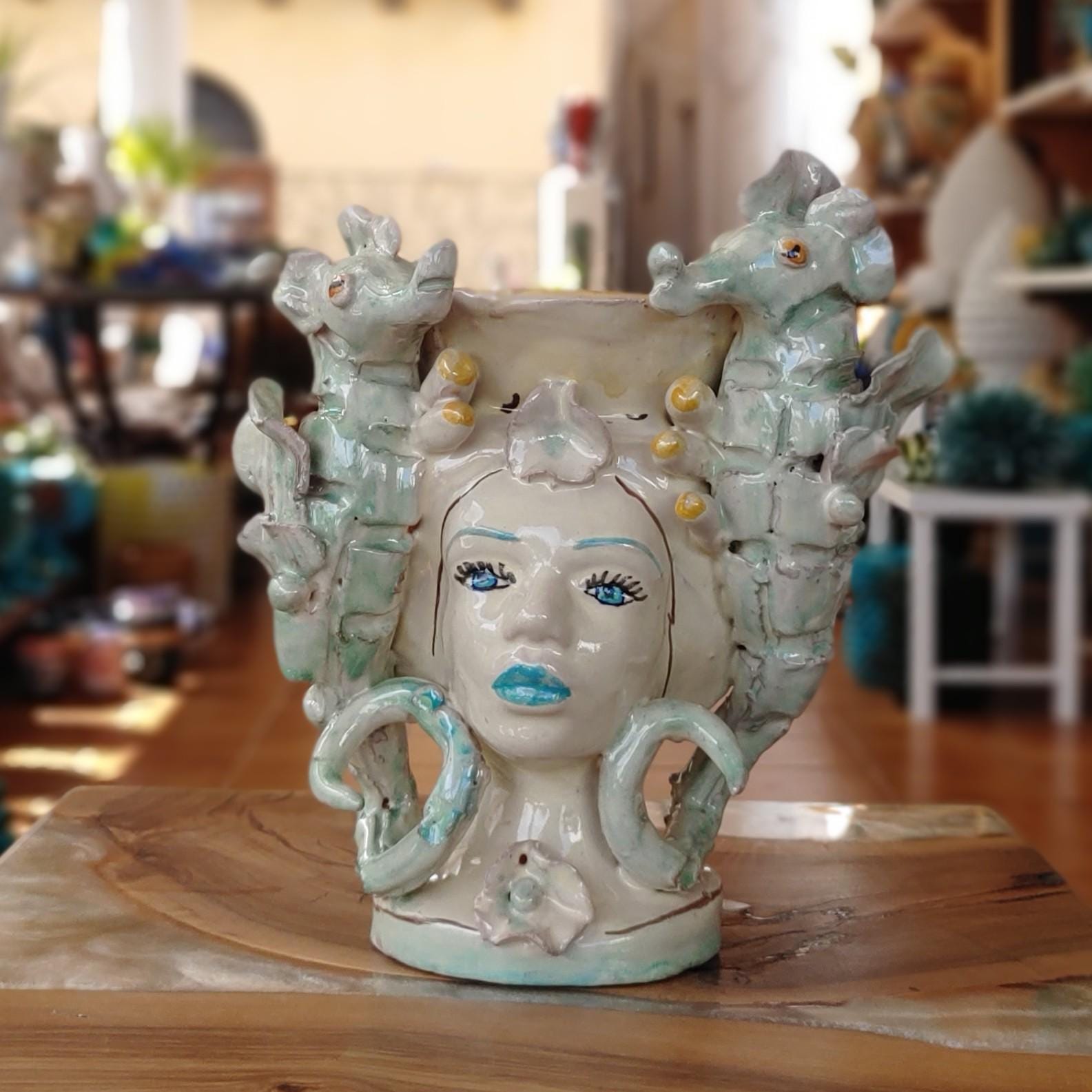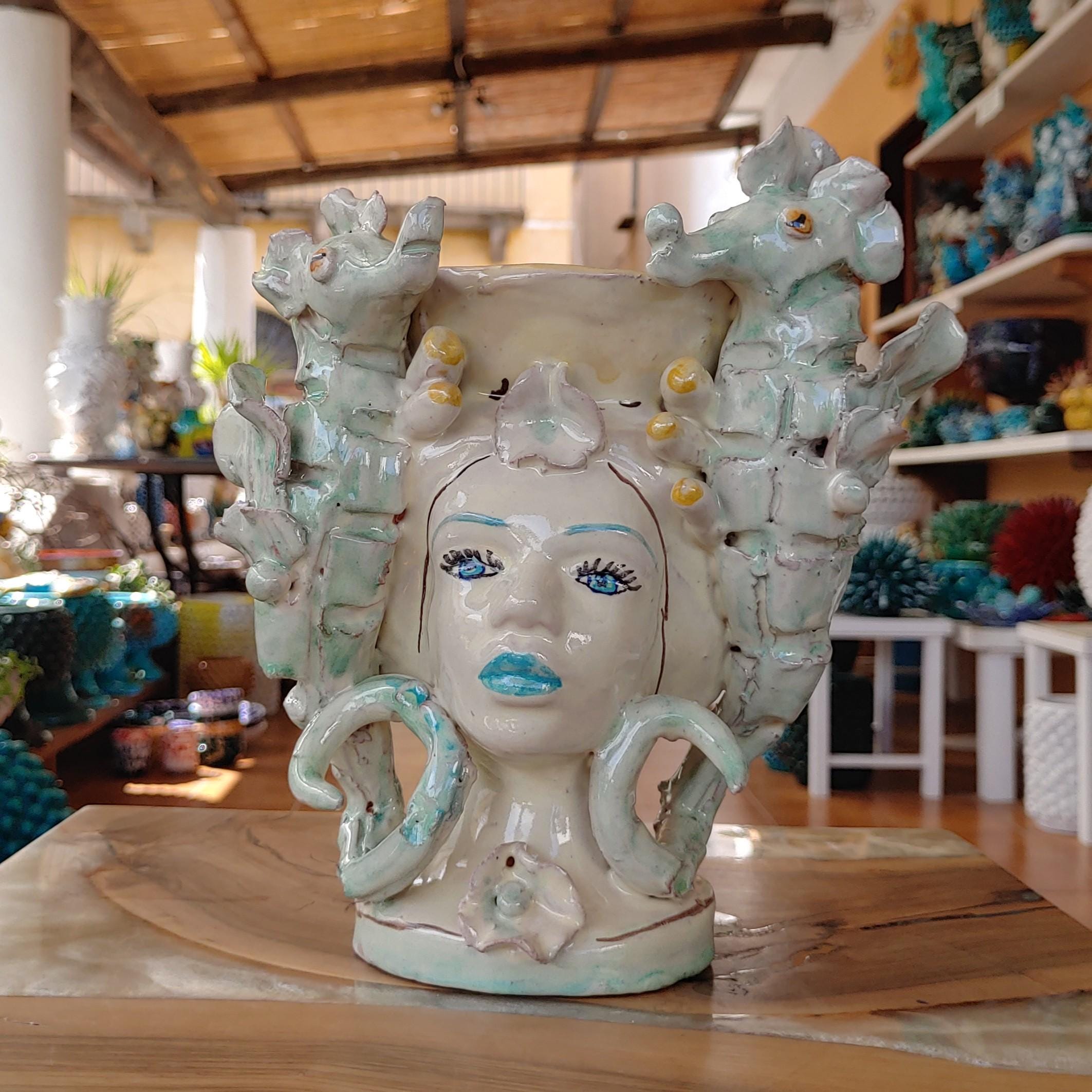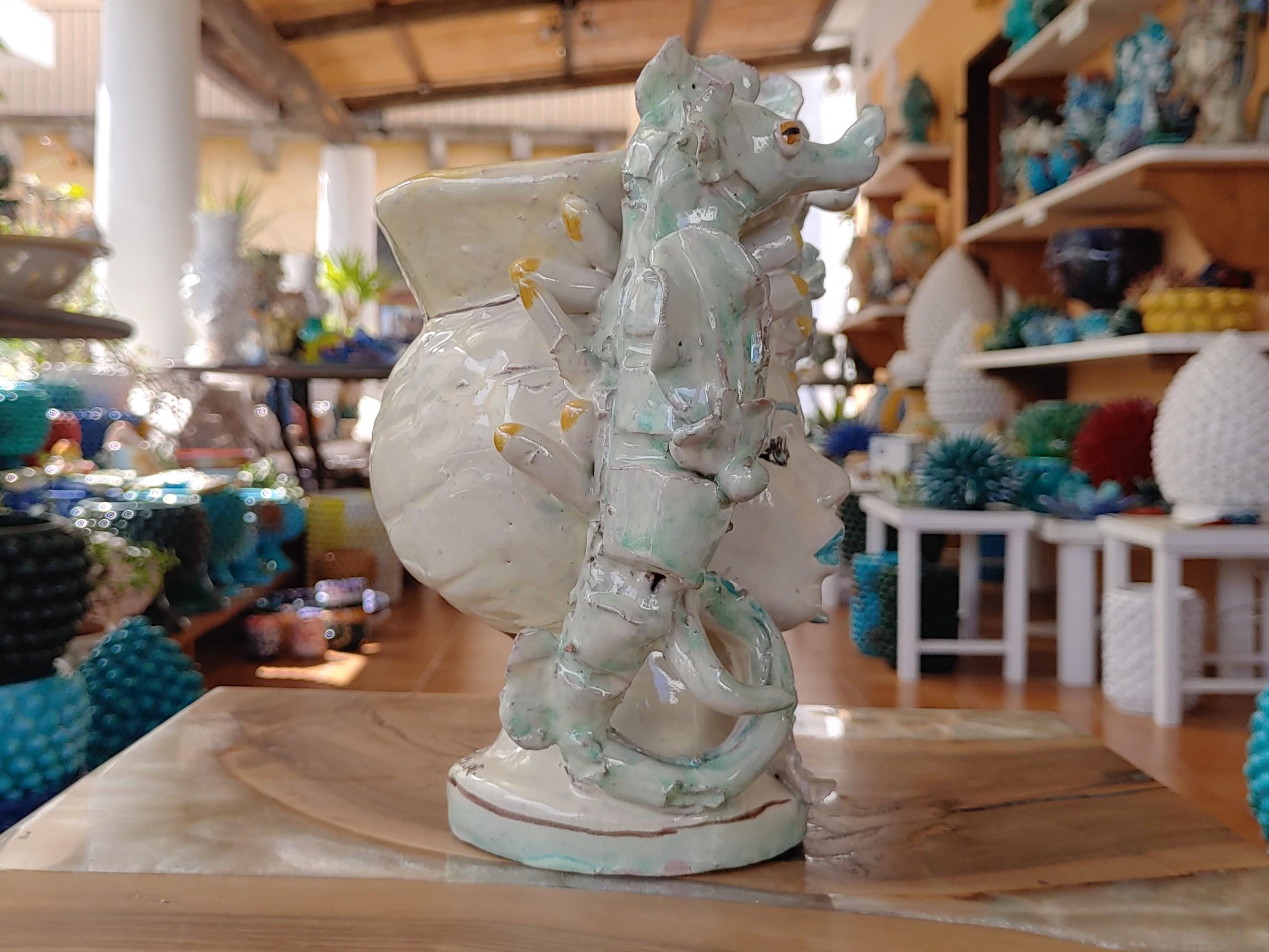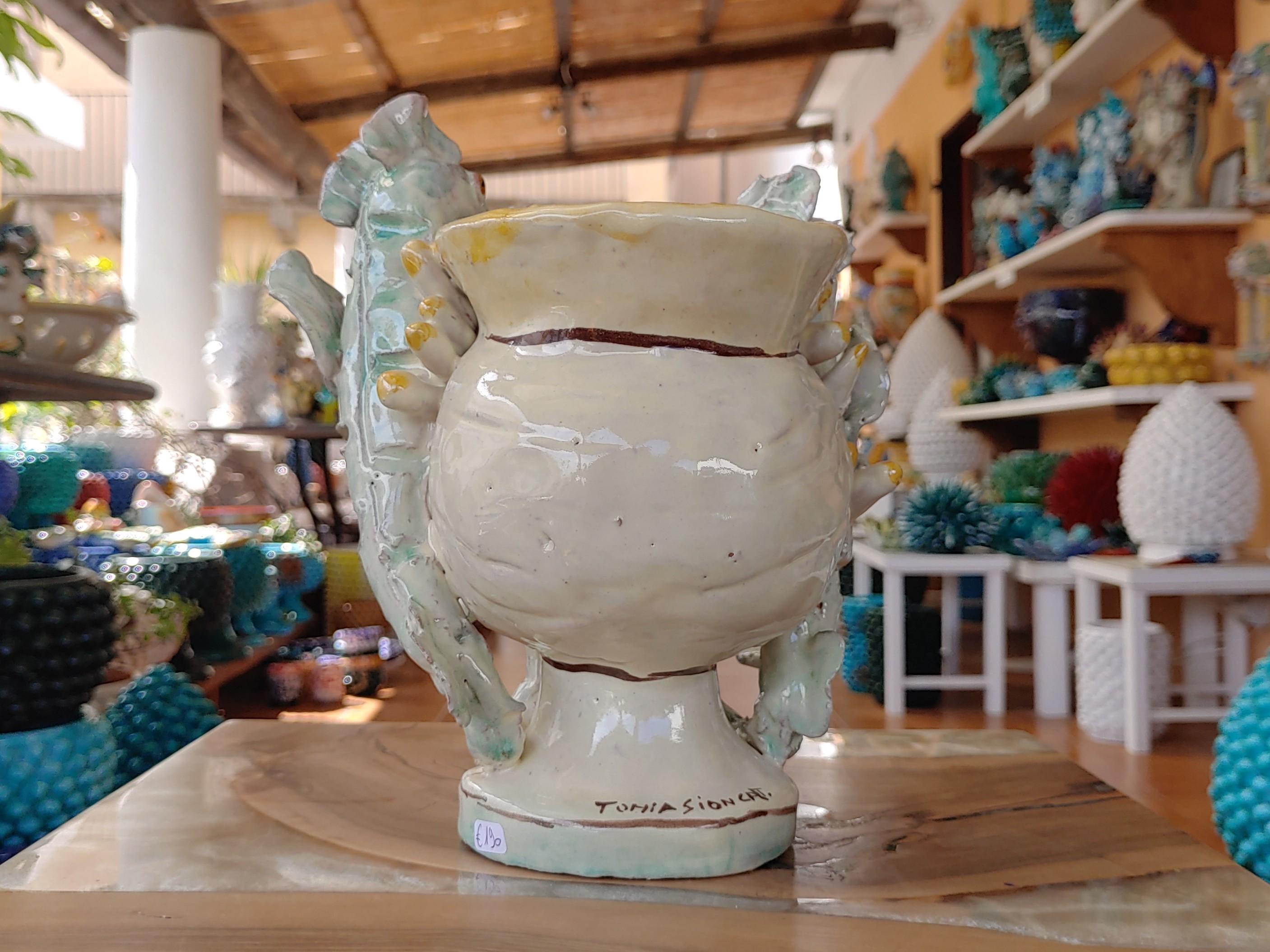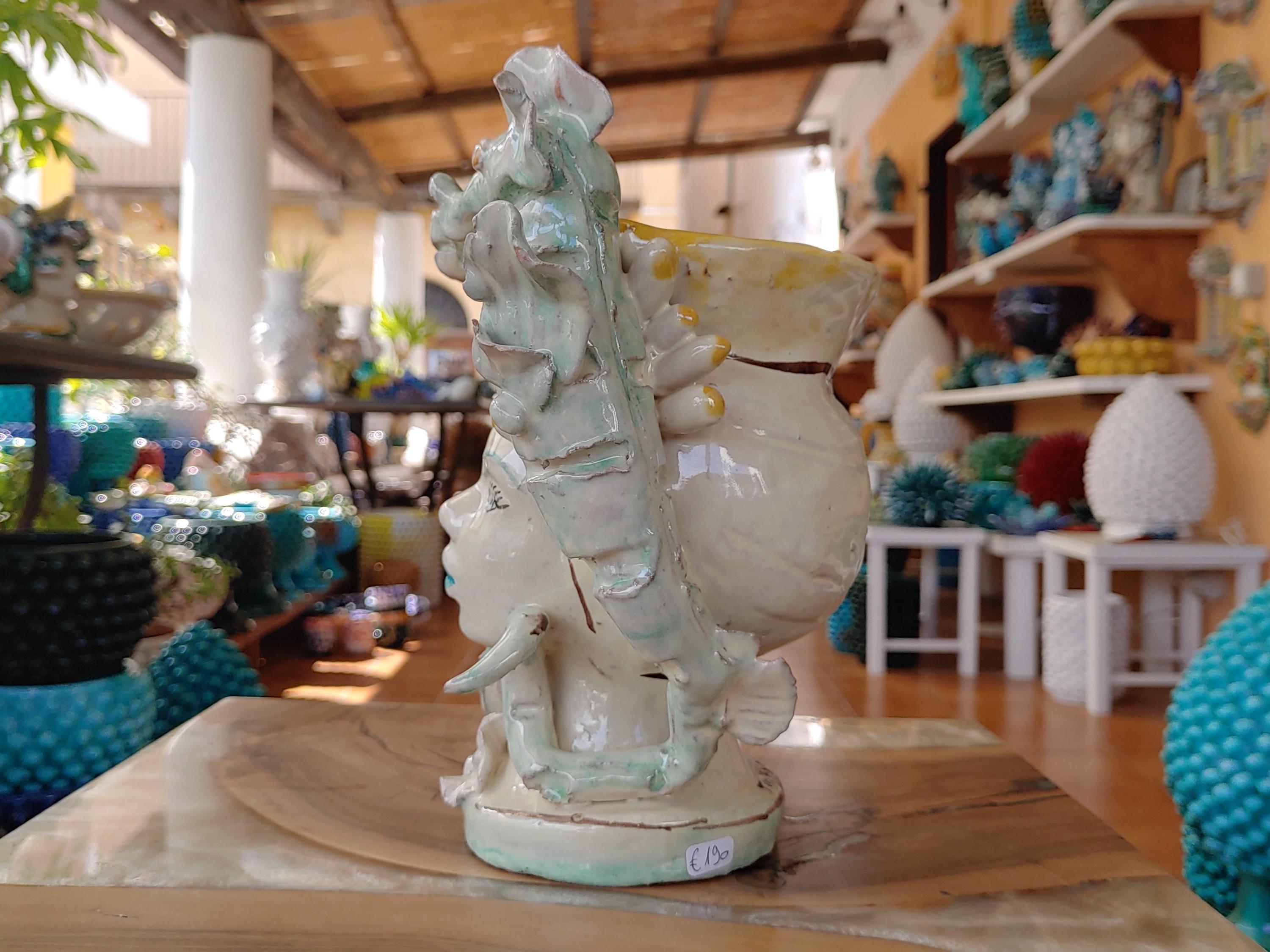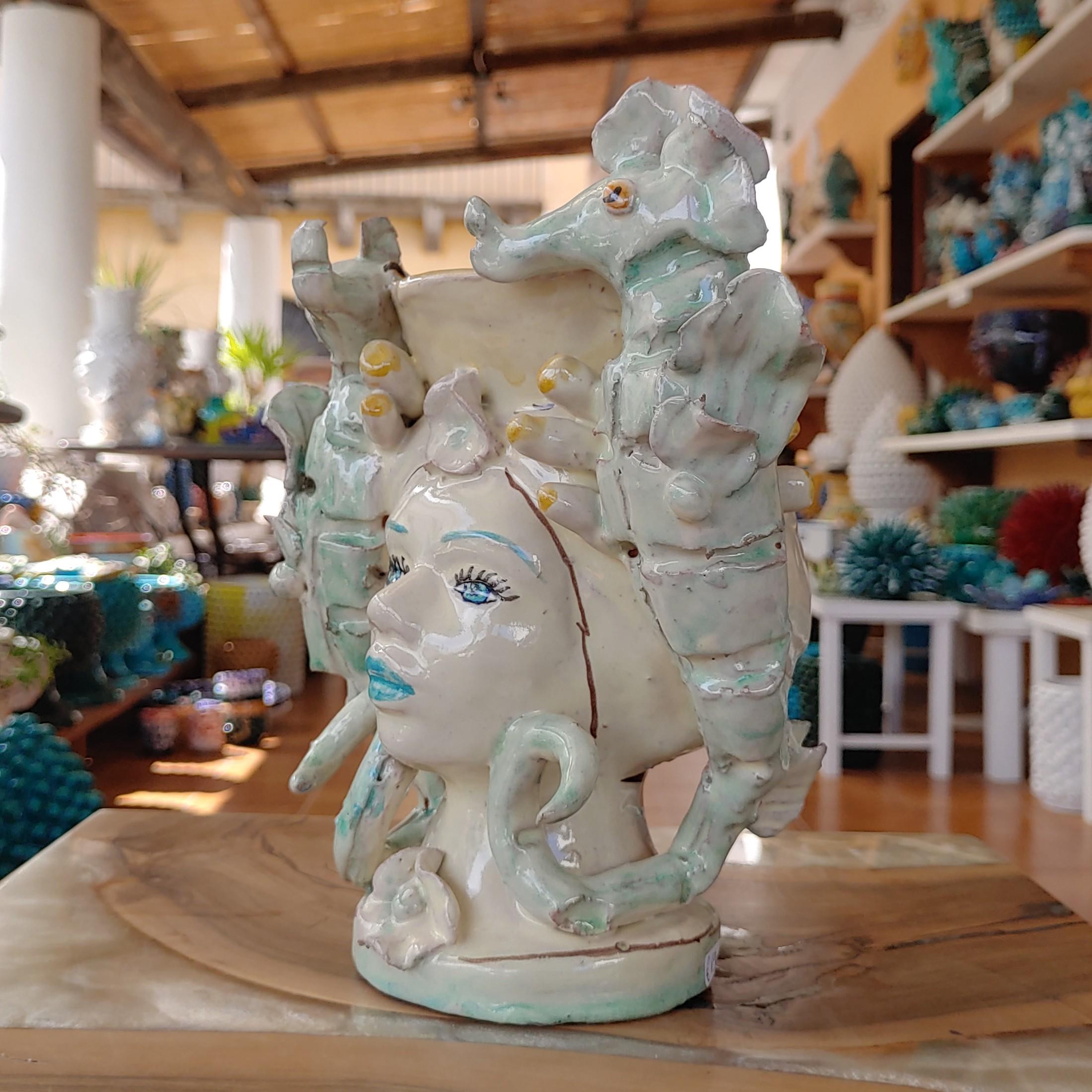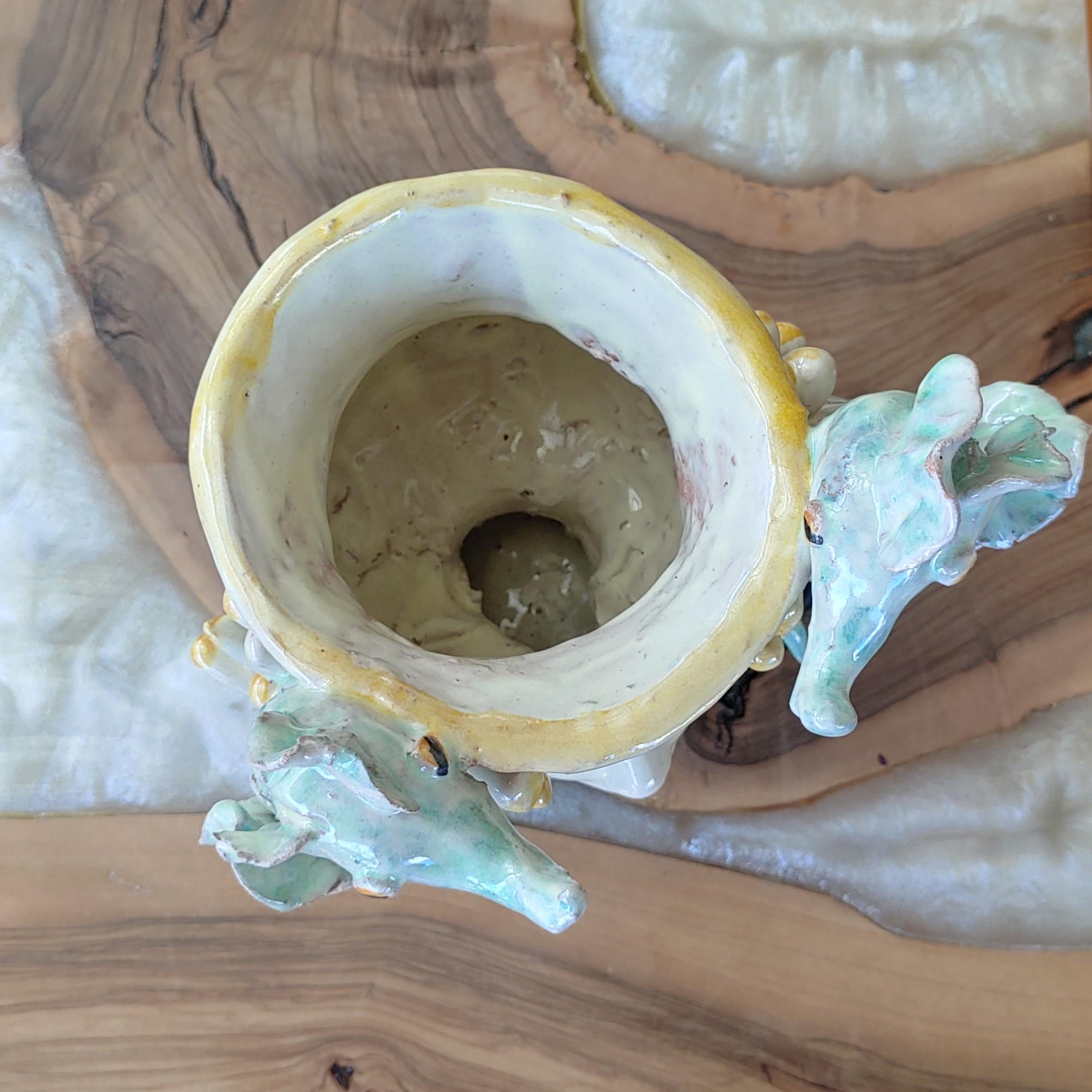Head Goddess Aphrodite, vases, Sicilian artisan ceramics, Design, home decoration, artistic vase, Moor's head, Sicilian craftsmanship
$231.54
Head of Gods and Myths and Legends,
Goddess Aphrodite small h21 l18 p15
It was entirely handcrafted in shape and color, truly wonderful piece!
already an element of very high artistic value that can be further enhanced by a plant placed inside or can also be used in various ways,
Like the other heads, it too is empty inside.
Myth
The Myth of Aphrodite: The Goddess of Beauty and Love
Ἀφροδίτη in Greek, Aphrodite was, in Greek religion and mythology, the goddess of beauty, but also of fertility, love and procreation. According to some, it is a cult of oriental origin, for others of Phoenician origin. In any case, it was Hellenized by Homer in the Odyssey, a poem in which it is written that she is originally from Paphos, on the island of Cyprus. The goddess Aphrodite was one of the most important and venerated goddesses in the Greek pantheon, many temples, cults and religious celebrations were dedicated to her. In poems and in the different versions of myths, she often presents herself as a jealous, passionate goddess, aware of her own beauty, sensual and quick to anger and revenge, especially towards those who try to take her lovers away from her, or even just want to share them.
The goddess, whom the Romans renamed Venus, was according to Homer the daughter of Zeus and the nymph Dione, daughter in turn of Uranus and Gaea. According to Hesiod, however, the goddess was born from the sea foam fertilized by the genitals of Uranus, whom Cronus had castrated in his rebellion. The image of the birth of the goddess in a spring environment, where nature blooms and everything flourishes and is reborn together with the arrival of the goddess, seen as a bearer of fertility, is present in many works, including the De Rerum Natura by the Latin poet Titus Lucretius Carus, as well as in the famous painting by Botticelli, the Birth of Venus. In the depictions, in fact, the nature that surrounds her is lush and pure, uncontaminated and perfect, while the goddess is of a beauty that only the most beautiful of goddesses could have: an ethereal face, long blond curls that run down her back, and an expression of seraphic and celestial sweetness. Many plants were sacred to Aphrodite, such as the rose, the myrtle and the poppy, and various animals, such as the hare, the dove, the dolphin, the swan and the sparrow (with regard to the latter, it is obligatory to mention Sappho's Ode to Aphrodite, an invocation similar to a religious hymn, in which the goddess descends to earth on a winged chariot pulled by sparrows and other birds, to alleviate the amorous suffering of the poetess from Lesbos).
In the Homeric poems, the presence of Aphrodite is often highlighted. In the Iliad, she has the role of defending her son Aeneas, a Trojan, fathered by Anchises (Priam's cousin). Therefore, in the war, she is on the side of the Trojans. However, it is also highlighted that she is not at all devoted to war: in fact, in battle, while trying to protect her son, she is wounded by the fearsome Greek hero Diomedes, and although she is then cured by the doctor of the gods, Peone, Zeus reproaches her for this. Even before the beginning of the Trojan War, however, her role in the myth of the Judgement of Paris must be mentioned: in fact, she was chosen as the most beautiful goddess, in competition with Hera and Athena. In exchange, Aphrodite gave Paris the love of the most beautiful woman in the world, Helen, wife of the Atreides Menelaus; furthermore, in the third book of the Iliad, the goddess protects not only her son, but also Paris. In the Odyssey, however, she is presented as the wife of the deformed god Hephaestus, and lover of Ares, with whom she is caught in the act by her husband.
The cult of Aphrodite was taken very seriously: it was celebrated with periodic festivals, as Plutarch tells us, and the goddess was also celebrated in the festivals in honor of Poseidon. Among the numerous epithets and titles referred to the goddess, we cite the most common: Cypris, or Cyprigna, in reference to the Hesiodic myth of her birth; Ambologera (“who never ages”), Cythera, Virgin, Aurea, Celeste, Lady. There were also countless lovers, and the corresponding children of Aphrodite. The most important are: Adonis, from whom he had Priapus, Anchises, from whom he had Aeneas, Ares, from whom he had Eros, Deimos, Anteros and Phobos, then Dionysus, from whom he had Charites, Hermes, from whom he had Eunomia, Poseidon, from whom he had Rhodo, and Pygmalion, from whom he had Paphos.
Shipping from Italy
Processing time
3-5 business days
Estimated shipping times
- Italy : 3 - 6 business days
- North America : 10 - 15 business days
- Europe : 7 - 15 business days
I'll do my best to meet these shipping estimates, but can't guarantee them. Actual delivery time will depend on the shipping method you choose.
Customs and import taxes
Buyers are responsible for any customs and import taxes that may apply. I'm not responsible for delays due to customs.
Payment Options
Returns & Exchanges
I gladly accept returns and exchanges
Just contact me within: 5 days of delivery
Ship items back to me within: 7 days of delivery
I don't accept cancellations
But please contact me if you have any problems with your order.
The following items can't be returned or exchanged
Because of the nature of these items, unless they arrive damaged or defective, I can't accept returns for:
- Custom or personalized orders
- Perishable products (like food or flowers)
- Digital downloads
- Intimate items (for health/hygiene reasons)
- Items on sale
Conditions of return
Buyers are responsible for return shipping costs. If the item is not returned in its original condition, the buyer is responsible for any loss in value.

